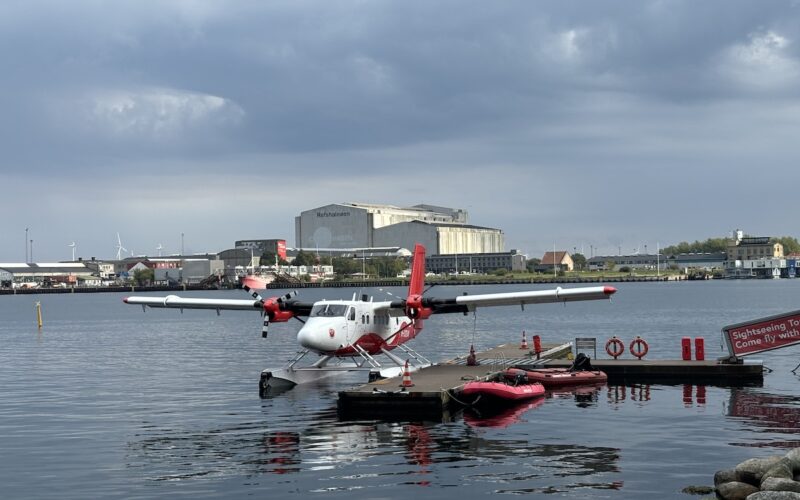On September 24, 2024, Nordic Seaplanes, Europe’s only scheduled seaplane operator, announced a deal with Norwegian startup Elfly Group to become the launch customer of a clean-sheet fully electric seaplane called “Noemi” (short for “No Emissions”).
The Danish airline, which currently operates DHC-6 Twin Otter amphibious aircraft, will have to wait until the end of the decade before receiving delivery of five of these battery-powered seaplanes (plus 10 options).
However, the agreement was hailed by both companies as an important step forward, not just in the decarbonization of the sector, but also as a step towards expanding what is still a rather small, coastal air mobility industry. In addition to the absence of carbon emissions, the lower operating costs and much quieter engines brought about by electric propulsion technology, open up many more potential seaplane route possibilities than there are at present.
During a public event that preceded the signature of the deal, Lasse Rungholm, of Nordic Seaplanes, highlighted several regions in Europe that could be candidates for hosting future seaplane operations. These included Scandinavia and the Baltic Sea, the Canary Islands and the Balearic archipelago in Spain, Sicily and its adjacent islands and the Aegean Sea.
AeroTime spoke with Rungholm after the event to learn more about Nordic Seaplanes’ current value proposition and the regular operations it currently conducts between Denmark’s two main cities, Copenhagen, and Aarhus. The direct seaplane link allows travelers to save nearly four hours of travel time on this route, compared to the land transportation alternatives.
Watch the video below to find out more.
Eric Lithun, founder and CEO of Norway-based Elfly Group also went on camera to speak about the current status of the Noemi electric seaplane project, its main characteristics, and the next steps in its development process.
Watch the video below to find out more:


1 comment
Is it just me… Or do electric seaplanes not sound like a particularly bright idea, especially if lithium ion batteries are involved? Sea water and those batteries have proven, during these past 2 hurricanes in the Atlantic and Gulf US states, they really don’t get along at all! So unless those planes will operate only in fresh water mileux, it would appear an invitation to many expensive disasters… and not a few needless deaths!